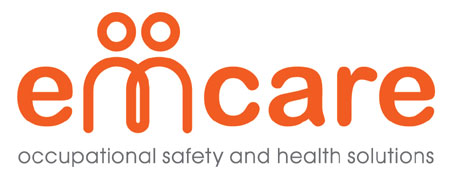Mental health concerns are increasingly acknowledged within Scottish workplaces, prompting a shift toward proactive measures. Scotland’s Mental Health First Aid (SMHFA) equips your workforce not just with awareness, but with confident, compassionate skills to recognise early signs and offer vital support. This long‑form article walks through the core principles of SMHFA, its practical benefits, and ways EmCare can help you embed this into your organisation.
What SMHFA Does: Teaching Early Detection and Compassionate Intervention
The SMHFA programme is purpose‑built to empower people—regardless of their professional background—to spot early signs of mental distress and provide respectful, empathetic support until professional help is engaged.
- The course spans 12 hours, delivered over two full days, four half‑days, or six two‑hour sessions, led by qualified instructors under the oversight of Public Health Scotland.
- It covers recognition and response to a range of conditions—depression, anxiety, psychosis, self‑harm and suicidal thoughts—alongside suicide intervention, the recovery message, and how substances like alcohol affect mental health.
- Importantly, SMHFA does not train therapists; rather, it equips participants with first‑response tools: to listen non‑judgementally, provide reassurance, and signpost to appropriate professional help.
Spotting Early Warning Signs: The Heart of SMHFA
Recognising subtle symptoms early can be game‑changing in preventing crisis escalation.
- SMHFA emphasises early recognition—teaching participants to observe behaviour, mood, productivity, or social changes and respond sensitively.
- A practical workplace guide describes how MHFAiders look for changes in behaviour or productivity, listen without judgement, and use a structured action plan—such as ALGEE—to approach, assess, and assist in mental distress.
- Expert trainers stress spotting early signs, offering confident support, preventing harm, intervening early, and guiding individuals toward recovery—helping them access the right support before reaching crisis point.
Clear Benefits for Organisations
Integrating SMHFA into your workplace delivers significant advantages—operationally and culturally.
- Early identification and support help prevent prolonged absenteeism or presenteeism by encouraging timely help‑seeking.
- Organisations report reduced absenteeism and presenteeism, as employees feel safer discussing concerns and better supported to recover.
- A healthier, more inclusive workplace culture emerges, rooted in openness and trust, helping to reduce stigma.
- Training clarifies the boundaries of the MHFA role, ensuring staff know their scope and how to signpost effectively, without stepping into responsibilities best left to professionals.
- Participants also become better at connecting individuals to internal and external resources—lightening the load on HR or management as sole responders.
- Broader benefits include higher morale, employee loyalty, and legal compliance, fostering a resilient environment, while fulfilling duty of care obligations.
Practical Value: Real Workplace Impacts
MHFA training has shown tangible results across industries:
- Mental health issues are a leading cause of employee absence, costing UK organisations billions each year. More businesses are investing in mental health provisions, including first aid training. SMEs and larger firms alike—such as Liverpool John Lennon Airport and Kompan—have introduced SMHFA training and seen an improvement in both attendance and staff well‑being.
- Globally, major companies—including Bank of America, Starbucks, Merck, and Unilever—have adopted MHFA programmes to create safer environments, train staff to initiate helpful conversations, and promote peer‑to‑peer support.
These successes show how early recognition and support can shift workplace culture and outcomes significantly.
How SMHFA Challenges Stigma and Empowers Colleagues
Beyond immediate support, SMHFA training builds a culture of empathy:
- By educating employees on how to notice early warning signs and speak openly about mental health issues, SMHFA reduces stigma and normalises conversations around mental wellbeing.
- The training increases awareness, confidence, and non‑judgemental attitudes toward mental illness—empowering staff to both seek and offer help respectfully.
Why SMHFA Works: The Evidence Base
SMHFA isn’t just well‑intentioned—it’s evidence‑based:
- Evaluations show that MHFA training consistently improves knowledge, reduces negative attitudes, and increases supportive behaviour toward those in distress.
- Originating in Australia in 2001, the programme has expanded globally (over 6 million trained as of 2024), and is recognised as an effective public health intervention.
- The structured format—covering early recognition, active listening, de‑escalation, and signposting—fosters confidence and meaningful, early responses rather than merely awareness.
Choosing EmCare for SMHFA Training
At EmCare, we bring professionalism and flexibility to delivering SMHFA across Scotland:
- Our courses are tailored to the SMHFA standard—delivered by qualified instructors, with formats that cater to your team’s schedule and needs.
- You can visit us online quickly via our mental health courses portal.
- For a helpful conversation before booking, feel free to contact us through our Contact Us page or give us a call on 0141 404 0075.
- Whether in‑house or public training is preferred, we ensure excellent quality, responsiveness, and alignment with organisational wellbeing goals.
Building a Case for SMHFA Internally
To secure buy‑in from leadership or board members, you may wish to:
- Prepare the data: Use UK cost figures (e.g. national cost of mental ill‑health) and internal absence statistics to illustrate the opportunity.
- Highlight benefits: Point to earlier employee help‑seeking, lower absence rates, improved morale, and alignment with legal duties.
- Frame human stories: Anecdotes about people feeling supported or staying in roles thanks to early intervention can be powerful.
- Recommend a pilot: Running a small SMHFA session with evaluation can showcase immediate returns.
- Set KPIs: Track metrics such as reduced sick days, higher engagement scores, or well‑being survey improvements post‑training.
Conclusion
SMHFA equips your team to recognise early indicators of mental health distress—and to respond with empathy, confidence, and a clear action plan. It helps break down stigma, builds workplace resilience, and contributes to better outcomes—for individuals and the organisation alike.
For high-quality SMHFA training in Scotland, EmCare stands ready to partner with your organisation. Order online today, or reach us via our Contact Us page or 0141 404 0075 to explore options.
Together, we can make your workplace a place where mental health is noticed, supported, and respected—from the very start.


